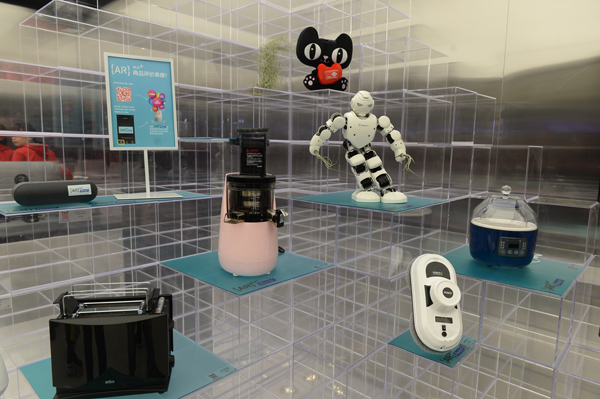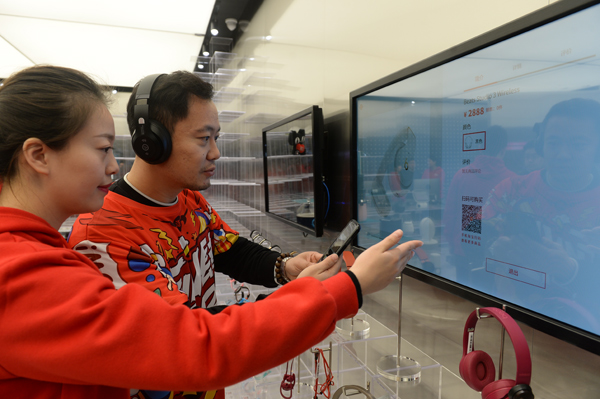China Unicom opens new Shanghai 'smart store' with Alibaba
By He Wei in Shanghai | chinadaily.com.cn | Updated: 2017-12-15 14:44

China Unicom, the nation's second-largest telecom operator, unveiled an interactive and technology-powered store in Shanghai on Friday, teaming up with Alibaba Group Holding.
The Smart Living Experience Store in West Shanghai's Jiangsu Road marked its very first tie-in with the tech titan that has been involved in the carrier's mixed-ownership reform since August.
The 177-square-meter booth underpinned the first steps to seamlessly integrate a real-time, in-store and online customer experience, backed by Alibaba's Taobao app and the firm's augmented-reality technology, according to Wang Jiabin, technology director of Alibaba New Retail.
For instance, the shop shelved an array of sought-after electronic products - from smart speakers and drones to air purifiers – that are available on Alibaba's Tmall site. A distinctive QR code is attached to each item, allowing shoppers to scan it with their smartphones and be redirected to the respective online purchasing pages.
By turning on the Taobao app's augmented-reality function, customers will be able to scan key features of specific products as they tour the store. They can place an order online and then choose to either get the goods delivered or pick them up in-store.

The pilot program is expected to "greatly increase" customer flow to China Unicom's physical stores, especially the tech-savvy younger generation who are accustomed to handling telecom-related business online, said Huang Zhengshi, vice-general manager of the west branch of China Unicom Shanghai.
"A majority of our existing visitors are above the age of 40. We believe the enhanced digital experience would deepen the engagement with customers, and attract not only those between 20 to 30 years old but also more people who aren't currently subscribed to our telecom services," he noted.
The business isn't run by intuition. For example, the types of merchandise being sold and displayed in-store are based on big data analysis that tracks shopping preferences among the population adjacent to the store, according to Liu Xiaopeng, an Alibaba technician who provides operating support for the store.
"To pinpoint prospective consumers, we've combined location information generated from the mapping service Amap, search histories from the browser UCWeb, and sales figures from Tmall and Taobao, to get a precise picture of the demographics," he said.
Last month, China Unicom linked up with JD, the country's second-largest e-commerce player and also a newly introduced shareholder, to build the first such concept store in the southern city of Guangzhou.
JD's facial recognition technology, motion recognition technology, motion sensors, Wi-Fi detectors, and smart billboards were applied in the store, China Unicom said in a press release.
























